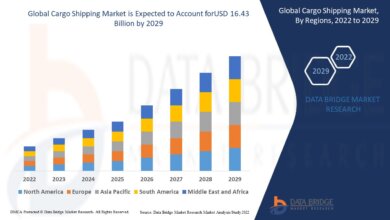Best ESG Reporting Software: A Complete Guide to Choosing the Right Solution in 2025
Introduction to ESG Reporting Software
As environmental, social, and governance (ESG) standards continue to influence corporate behavior worldwide, the demand for effective ESG reporting software has skyrocketed. Organizations are now expected not just to make profits but also to contribute positively to society and the environment. This shift has created the need for companies to track, manage, and report their ESG performance with precision. Choosing the best ESG reporting software is no longer a luxury—it is a strategic necessity. The right tool ensures transparency, builds investor trust, improves sustainability performance, and ensures regulatory compliance. In this blog, we’ll explore what ESG reporting software is, its key benefits, must-have features, and a curated list of the best ESG reporting software available in 2025.
What is ESG Reporting Software?
ESG reporting software is a digital solution designed to help businesses collect, analyze, manage, and disclose their ESG data in alignment with recognized sustainability frameworks. These platforms help streamline the reporting process, automate data collection, ensure data accuracy, and generate ESG reports compliant with global standards such as GRI, SASB, TCFD, CDP, and more. ESG reporting software plays a pivotal role in ensuring a company’s sustainability performance is measurable, comparable, and auditable, which are critical for stakeholders like investors, regulators, employees, and consumers.
Why ESG Reporting is More Important Than Ever
In today’s business climate, ESG performance has become a crucial determinant of long-term value creation. Investors prefer companies that are socially responsible and environmentally conscious. Regulators are pushing for stricter disclosures, and consumers are increasingly choosing brands that reflect their values. ESG reporting not only enhances a company’s reputation but also helps in risk mitigation, cost reduction, better decision-making, and access to capital. This makes investing in the best ESG reporting software a wise and future-proof decision.
Key Features of the Best ESG Reporting Software
Comprehensive Data Management – A good ESG reporting software must collect data from multiple sources, including utility bills, HR systems, supply chain partners, and more. It should support real-time data collection and allow for manual or automated inputs.
Framework Compatibility – Top-tier ESG software supports major ESG frameworks such as GRI, SASB, CDP, UN SDGs, TCFD, and CSRD. This ensures that reports are universally recognized and meet compliance standards.
User-Friendly Dashboards – Intuitive dashboards with customizable KPIs allow businesses to track performance in real-time. Visual analytics help in understanding ESG metrics, identifying gaps, and making informed decisions.
Automation and Integration – Automation features like data imports, report generation, and risk alerts save time and reduce human error. Integration with existing systems like ERP, HRMS, and financial software enhances data flow and efficiency.
Audit-Ready Reports – The best ESG reporting tools generate audit-ready reports that are credible and verifiable. They include version controls, user logs, and historical records to ensure traceability.
Scenario Analysis and Forecasting – Advanced tools come with predictive analytics that can simulate the impact of ESG initiatives over time. This helps companies plan future sustainability strategies.
Security and Compliance – With sensitive data involved, robust data security features such as encryption, role-based access, and compliance with GDPR and other data protection laws are critical.
Top Benefits of Using the Best ESG Reporting Software
Improved Transparency and Trust – ESG software fosters trust among stakeholders by providing consistent, accurate, and verifiable data. This transparency boosts brand loyalty and investor confidence.
Regulatory Compliance – With evolving global ESG regulations, reporting tools ensure businesses stay compliant, avoiding penalties and reputational damage.
Operational Efficiency – Automated data collection and analysis streamline the reporting process, reduce manual effort, and allow teams to focus on strategic tasks.
Informed Decision-Making – With access to real-time ESG data and insights, leadership can make informed decisions that align with sustainability goals.
Better Risk Management – ESG software helps identify sustainability risks early, enabling companies to take corrective actions before they escalate.
Cost Savings – By optimizing resource use, reducing waste, and identifying inefficiencies, ESG software contributes to long-term cost savings.
Enhanced Stakeholder Engagement – Engaging stakeholders through clear and concise ESG communication fosters collaboration and long-term relationships.
Best ESG Reporting Software in 2025
1. Enablon by Wolters Kluwer
Enablon remains a market leader in 2025 due to its powerful ESG, EHS, and risk management capabilities. It supports multiple ESG frameworks and automates the data collection and reporting processes. Its customizable dashboards and in-depth analytics allow businesses to monitor performance in real-time. Enablon’s strength lies in its integration capabilities, scalability, and built-in compliance tools.
2. Diligent ESG (formerly Accuvio)
Diligent ESG is a favorite among enterprises looking for a solution that simplifies ESG data gathering and aligns reports with frameworks like CDP, GRI, and TCFD. Its cloud-based platform offers automation, audit trail features, and advanced analytics. Diligent’s intuitive interface and strong customer support make it ideal for mid-to-large size corporations.
3. EcoVadis
EcoVadis offers a unique approach by evaluating the sustainability of supply chains and vendors. Companies can request ESG scorecards from their suppliers, making it perfect for businesses focused on responsible sourcing. Its standardized scorecards and benchmarking tools allow for consistent evaluation and improvement.
4. Workiva
Workiva’s ESG solution offers collaborative reporting features that allow finance, compliance, and sustainability teams to work together on a single platform. It supports structured data reporting, version control, and audit-readiness. Its flexibility to create narrative-driven reports is a key differentiator.
5. IBM Envizi ESG Suite
IBM’s Envizi ESG Suite is a robust platform designed to help organizations capture and manage ESG data across environmental, social, and governance metrics. The software features built-in sustainability insights, advanced analytics, and seamless integrations with ERP and energy systems. Backed by IBM’s AI capabilities, it provides forecasting tools and automated data cleansing.
6. Cority ESG
Cority offers a user-friendly ESG solution that covers materiality assessments, stakeholder engagement, and performance tracking. Known for its scalability, Cority’s cloud-based system supports real-time data reporting and aligns well with frameworks like SASB, GRI, and TCFD. It is widely used in manufacturing, energy, and healthcare sectors.
7. SpheraCloud ESG
SpheraCloud is built for enterprises that require robust ESG tracking with operational risk management. It allows users to collect data across the enterprise, perform impact analysis, and generate audit-ready reports. The system is equipped with AI features for better risk identification and regulatory alignment.
8. FigBytes
FigBytes offers a unique data-to-story platform, converting complex ESG data into understandable narratives. It is especially valuable for stakeholder reporting and engagement. FigBytes supports multiple frameworks and offers visual dashboards, impact tracking, and a user-centric interface.
9. Benchmark Gensuite
Benchmark ESG Gensuite is known for its compliance strength and cross-functional capabilities. It allows for deep dives into ESG metrics, provides alerts on deviations, and supports multiple languages. It’s ideal for multinational organizations that require standardized yet flexible reporting.
10. Persefoni
Persefoni is especially powerful for carbon accounting and climate disclosure. With built-in support for TCFD and SEC climate reporting rules, Persefoni uses AI and machine learning to ensure accurate emissions tracking. It’s trusted by financial institutions, public companies, and ESG-focused startups.
How to Choose the Best ESG Reporting Software for Your Business
Assess Your ESG Goals – Determine whether you need basic ESG tracking, advanced analytics, or full-scale integration with other business systems. Knowing your objectives helps in narrowing down suitable platforms.
Check Framework Support – Choose a solution that supports the reporting standards relevant to your industry and stakeholders. For multinational companies, multi-framework compatibility is essential.
Scalability and Customization – Look for software that can grow with your business and adapt to changing ESG regulations. Custom dashboards, metrics, and workflows offer flexibility.
Integration Capabilities – Ensure that the ESG software can integrate with your existing systems like ERP, CRM, HRMS, and financial tools to streamline data collection and accuracy.
Ease of Use and Training – Opt for a user-friendly platform that minimizes the learning curve. Some vendors offer onboarding and training support, which can be invaluable.
Vendor Reputation and Support – Consider customer reviews, market reputation, and the quality of customer support. A responsive and knowledgeable support team makes a big difference during implementation and troubleshooting.
Total Cost of Ownership – Evaluate both the upfront and long-term costs. Some platforms may offer flexible pricing models like subscription or usage-based, while others may require enterprise licenses.
The Future of ESG Reporting Software
As we look ahead, ESG reporting software is expected to evolve with AI, machine learning, and blockchain technology. AI will enable predictive sustainability modeling and scenario analysis. Blockchain may offer verifiable ESG records that are tamper-proof and trusted by investors. Real-time data from IoT devices, smart meters, and mobile apps will feed directly into ESG dashboards, making reporting dynamic and continuous rather than periodic. These trends will make ESG performance not just a reporting requirement but a core component of business intelligence.
Conclusion: Invest in the Best ESG Reporting Software for Sustainable Growth
Choosing the best ESG reporting software in 2025 is a strategic move that empowers businesses to become more transparent, sustainable, and future-ready. With global pressure mounting from investors, regulators, and conscious consumers, having a reliable ESG platform is no longer optional. From automation and integration to compliance and performance tracking, the best ESG software simplifies complexity and turns data into actionable insights. Whether you’re a startup aiming for net-zero emissions or a global enterprise seeking to meet CSRD regulations, investing in the right ESG tool today sets the foundation for tomorrow’s success.




